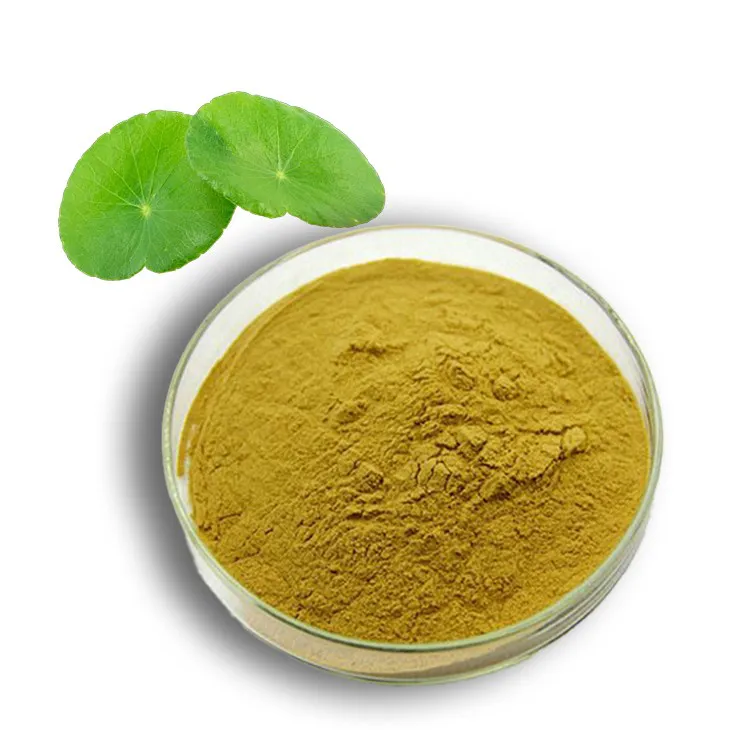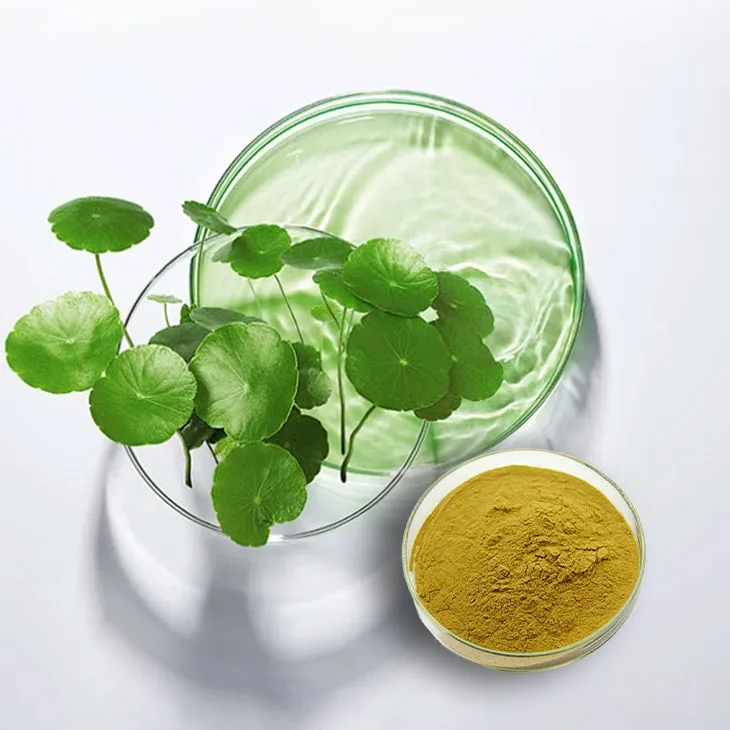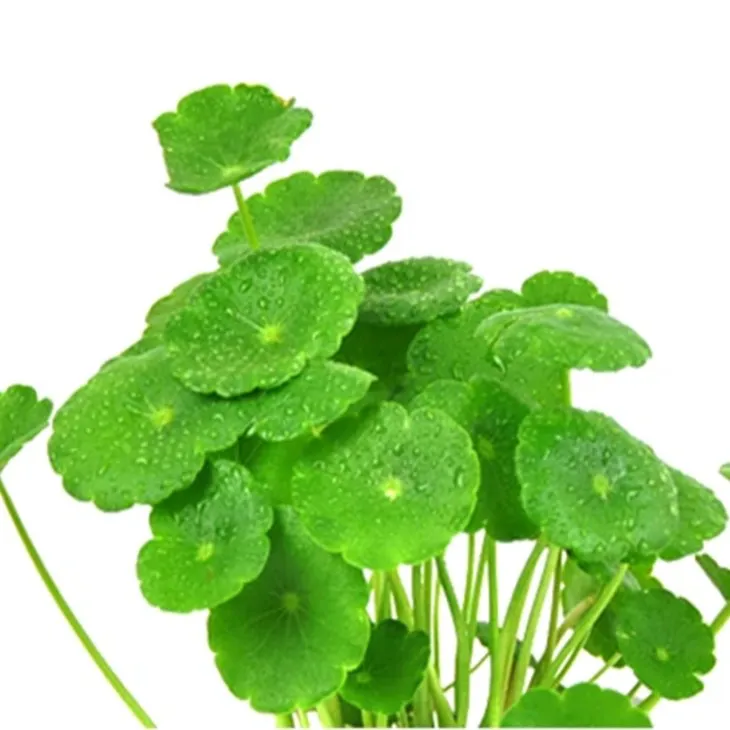- 0086-571-85302990
- sales@greenskybio.com
How do manufacturers of Centella asiatica extract wholesale and customize products?
2024-12-19

1. Introduction
Centella asiatica, also known as snowwort, has been widely used in various industries, especially in the cosmetic and pharmaceutical fields. The extract of Centella asiatica contains a variety of beneficial compounds such as asiaticoside, madecassoside, and asiatic acid. Manufacturers of Centella Asiatica Extract play a crucial role in the supply chain of natural ingredients. This article will focus on how these manufacturers carry out wholesale and customization of their products.

2. Wholesale of Centella Asiatica Extract
2.1 Market Research
Market research is the foundation for successful wholesale. Manufacturers need to constantly monitor the demand trends of Centella Asiatica Extract. For example, in recent years, with the growing popularity of natural and herbal skincare products, the demand for Centella asiatica extract in the cosmetic industry has been on the rise. They should also pay attention to price trends. Fluctuations in raw material prices, production costs, and market competition can all affect the wholesale price of the extract. By analyzing market data, manufacturers can make informed decisions about production volume and pricing strategies.
2.2 Relationship Building with Distributors and Retailers
Establishing good relationships with distributors and retailers is essential for wholesale business. Distributors play a key role in getting the product to a wider market. Manufacturers should look for reliable distributors with a wide distribution network. They can offer incentives such as volume discounts, exclusive product lines, or marketing support to strengthen the partnership. Similarly, building relationships with retailers is also important. Retailers are the final link to the consumers. Manufacturers can provide product training, promotional materials, and after - sales support to retailers to ensure the smooth sale of their Centella asiatica extract products.
2.3 Packaging for Wholesale
Packaging is an important aspect of wholesale. Appropriate packaging not only protects the product during transportation and storage but also affects the product's marketability. For Centella asiatica extract, manufacturers should consider using packaging materials that are resistant to moisture, light, and oxygen, as these factors can degrade the quality of the extract. For example, using amber - colored glass bottles can protect the extract from light - induced degradation. Additionally, the packaging should be clearly labeled with product information such as the name of the extract, the concentration, the batch number, and the expiration date. Bulk packaging options like large drums or totes can be used for wholesale to reduce packaging costs per unit volume, while smaller, consumer - friendly packaging can be provided for samples or for retail - ready products.

3. Customization of Centella asiatica Extract
3.1 Effective Communication with Clients
When it comes to customization, effective communication with clients is the key. The clients of Centella asiatica extract manufacturers can range from small - scale start - up cosmetic companies to large - scale pharmaceutical enterprises. Each client may have different requirements. For example, a client may request a specific concentration of the active compounds in the extract, or a particular type of solvent for extraction. Manufacturers need to have a dedicated team to communicate with clients, understand their needs, and provide professional advice. This communication should be carried out throughout the entire customization process, from the initial concept to the final product delivery.
3.2 Formulation Innovation for Customization
In the case of customization, manufacturers often need to carry out formulation innovation. For instance, if a cosmetic company wants to develop a new product line of anti - aging creams with Centella asiatica extract and a special fragrance, the manufacturer needs to explore new ways to incorporate the fragrance without affecting the efficacy of the extract. This may involve testing different combinations of ingredients and adjusting the manufacturing process. Another example could be a pharmaceutical company that requires a Centella asiatica extract with a specific particle size for better absorption in the body. The manufacturer would then need to invest in research and development to achieve the desired particle size through techniques such as micronization.
3.3 Flexible Production Volume Adjustment
Customization also requires manufacturers to be able to adjust the production volume flexibly. The order quantity for customization can vary greatly from one client to another. Some clients may only need a small batch for initial product testing, while others may require a large - scale production for mass - market launch. Manufacturers need to have a production system that can scale up or down efficiently while maintaining high - quality standards. This may involve having flexible production lines, proper inventory management, and the ability to quickly source additional raw materials if needed. For example, if a client suddenly increases the order quantity, the manufacturer should be able to ramp up production without sacrificing product quality.

4. Quality Control in Wholesale and Customization
Regardless of whether it is wholesale or customization, quality control is of utmost importance for Centella asiatica extract manufacturers. In the wholesale process, manufacturers need to ensure that each batch of the extract meets the standard quality requirements. This includes testing for the purity of the active compounds, the absence of contaminants, and compliance with relevant regulatory standards. For customization, in addition to meeting the general quality standards, the customized product must also meet the specific requirements of the client. Quality control should be carried out at every stage of the production process, from raw material sourcing to final product packaging. For example, using advanced analytical techniques such as high - performance liquid chromatography (HPLC) to monitor the concentration of active compounds in the extract.
5. Regulatory Compliance in Wholesale and Customization
The Centella asiatica extract industry is subject to various regulatory requirements. In wholesale, manufacturers need to ensure that their products comply with relevant national and international regulations. For example, in the cosmetic industry, products containing Centella asiatica extract must meet the safety and labeling requirements of the destination market. In customization, regulatory compliance becomes even more complex as the customized product may have unique characteristics. Manufacturers need to work closely with regulatory authorities or consultants to ensure that the customized product is legally compliant. This may involve obtaining special permits or approvals for new formulations or production processes.
6. Marketing and Promotion in Wholesale and Customization
6.1 Wholesale Marketing
For wholesale, manufacturers can use various marketing strategies to promote their Centella asiatica extract products. They can participate in industry trade shows and exhibitions to showcase their products to potential distributors and retailers. Online marketing is also an important tool. Creating a professional website with detailed product information, case studies, and customer testimonials can attract more business partners. Social media platforms can be used to share industry news, product updates, and engage with the target audience. Offering product samples and brochures at industry events can also help to increase brand awareness and generate leads.
6.2 Customization Marketing
When it comes to customization marketing, manufacturers can focus on highlighting their ability to meet unique client requirements. Case studies of successful customizations can be used as powerful marketing materials. For example, if a manufacturer has successfully customized a Centella asiatica extract for a well - known cosmetic brand, sharing this story can attract other potential clients. Offering personalized product consultations and demonstrations can also help to build trust with clients. Additionally, building a reputation for quality and innovation in customization can set the manufacturer apart from its competitors in the market.
7. Conclusion
In conclusion, manufacturers of Centella asiatica extract face both opportunities and challenges in wholesale and customization. By conducting thorough market research, building good relationships, focusing on quality control and regulatory compliance, and implementing effective marketing strategies, they can thrive in this competitive market. The ability to meet the diverse needs of clients through customization while efficiently handling wholesale operations will be the key to their long - term success.
FAQ:
Q1: What are the key factors for manufacturers of Centella asiatica extract in wholesale?
Market research is crucial to understand demand and price trends. Building good relationships with distributors and retailers is also important. Additionally, packaging affects product protection and transportation, so it cannot be ignored.
Q2: How can manufacturers of Centella asiatica extract ensure product quality in wholesale?
Manufacturers need to adhere to strict quality control processes. This includes sourcing high - quality raw materials, using proper extraction methods, and conducting regular quality checks during production and packaging.
Q3: What is involved in customizing Centella asiatica extract products?
Effective communication with clients is key. Manufacturers may need to explore new formulation methods, for example, to meet special requirements such as a particular fragrance. They also need to be able to adjust production volume flexibly according to the customization order quantity while maintaining high - quality standards.
Q4: How do manufacturers of Centella asiatica extract deal with different order quantities in wholesale?
They should have a flexible production system. For large orders, they need to ensure sufficient production capacity and efficient production scheduling. For small orders, they may need to optimize production processes to avoid excessive costs while still meeting quality requirements.
Q5: What are the challenges for manufacturers of Centella asiatica extract in customization?
Meeting diverse client requirements can be a challenge. This may include creating unique formulations, ensuring compatibility with other ingredients in the client's product, and meeting strict regulatory requirements for customized products.
Q6: How do manufacturers of Centella asiatica extract maintain competitiveness in wholesale?
They can offer competitive prices by optimizing production costs. Providing high - quality products with reliable quality control is also important. Additionally, good customer service, such as timely delivery and responsive communication, can help maintain competitiveness.
Related literature
- Centella asiatica: From Traditional Medicine to Modern Cosmeceutical"
- "The Therapeutic Potential of Centella asiatica Extracts in Skin Health"
- "Production and Quality Control of Herbal Extracts: The Case of Centella asiatica"
- ▶ Hesperidin
- ▶ citrus bioflavonoids
- ▶ plant extract
- ▶ lycopene
- ▶ Diosmin
- ▶ Grape seed extract
- ▶ Sea buckthorn Juice Powder
- ▶ Beetroot powder
- ▶ Hops Extract
- ▶ Artichoke Extract
- ▶ Reishi mushroom extract
- ▶ Astaxanthin
- ▶ Green Tea Extract
- ▶ Curcumin Extract
- ▶ Horse Chestnut Extract
- ▶ Other Problems
- ▶ Boswellia Serrata Extract
- ▶ Resveratrol Extract
- ▶ Marigold Extract
- ▶ Grape Leaf Extract
- ▶ blog3
- ▶ blog4
- ▶ blog5
-
Pure 85% Tomentil Extract.
2024-12-19
-
Clove Powder
2024-12-19
-
Reishi mushroom extract
2024-12-19
-
Dandelion Root Extract
2024-12-19
-
Natural grape seed extract
2024-12-19
-
Boswellia Serrata Extract
2024-12-19
-
Rosemary extract
2024-12-19
-
Selenium yeast
2024-12-19
-
Maca Extract
2024-12-19
-
Hops Extract
2024-12-19
-
Acerola Juice Powder
2024-12-19





















